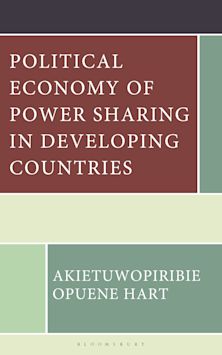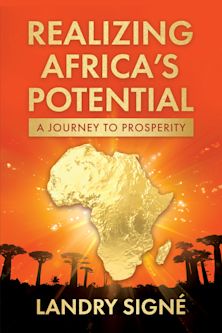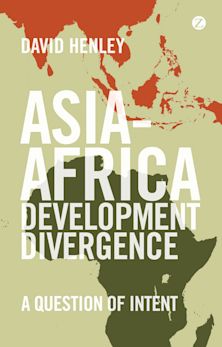- Home
- ACADEMIC
- International Development
- Development Economics and Emerging Economies
- Environmental Ethics for a Postcolonial World
Exam copy added to basket
Choose your preferred format. Please note ebook exam copies are fulfilled by VitalSource™.
Buy from Bloomsbury eTextBooks
You are now leaving the Bloomsbury Publishing website. Your eBook purchase will be with our partner https://www.vitalsource.com.
Your credit card statement will show this purchase originating from VitalSource Technologies. They will also provide any technical assistance you might require.
You must sign in to add this item to your wishlist. Please sign in or create an account
Description
In a fluid narrative style, Environmental Ethics for a Postcolonial World links environmentalism with colonialism and makes the strong case, through well-documented examples, that rapid economic change has caused an environmental and population crisis. Curtin also offers a unique interpretation of familiar history with surprising conclusions about the relationship between colonial attitudes and environmentalism. Today, more than ever, globalization demands that the so-called third world not face their social and environmental issues alone. This book offers clear examples of environmental strategies for our new globalized culture and is not only ideal for courses in environmental ethics, globalization, and environmental politics; it offers students and general readers a practical guide for change.
Table of Contents
Chapter 2 Lord Greystoke's Legacy
Chapter 3 Frankenstein or Tarzan?
Chapter 4 What Population Problem?
Chapter 5 Gandhi's Vision of Community Development
Chapter 6 The Third World in the First World
Chapter 7 Clean Clothes/Clean Conscience
Chapter 8 Don't Touch the Rocks!
Chapter 9 Aldo Leopold's Vision
Product details
| Published | Jan 28 2005 |
|---|---|
| Format | Ebook (Epub & Mobi) |
| Edition | 1st |
| Extent | 240 |
| ISBN | 9780742578487 |
| Imprint | Rowman & Littlefield Publishers |
| Series | Nature's Meaning |
| Publisher | Bloomsbury Publishing |
About the contributors
Reviews
-
A clear articulation and synthesis of emerging themes within environmental ethics, bioethics, ecofeminism, and globalization studies....Curtin's work serves as an excellent segue between many of these fields while reminding us of the important role of history within ethics.
Megan Wade Antieau, The Journal Of Religion
-
Environmental Ethics for a Postcolonial World by Deane Curtin opens a discussion that is timely and relevant to contemporary environmentalism. This book avoids the trap of narrowly defined environmentalism by linking environmentalism to progressive ideals, while maintaining that an ethic that marries environmental and social justice claims does not weaken both.
Dustin Mulvaney, Environmental Ethics
-
Curtin's discussion of Tarzan alone makes this book worthwhile for courses in environmental studies, and in sociology, literature, or philosophy courses with an environmental emphasis.
M. C. E. Peterson, University of Wisconsin Colleges, Choice Reviews

































